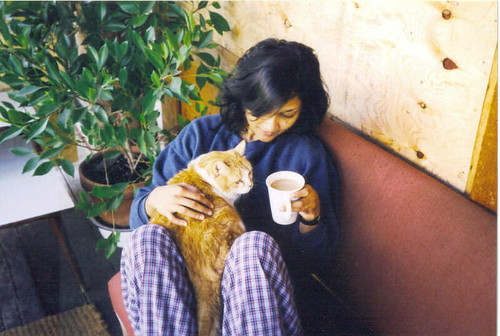The Book of Secrets by M.G.Vassanji
 The Book of Secrets
The Book of Secretsby M.G. Vassanji
"You taught history, sir. Can you write it?"
asks Feroz, a former student of Mr.Fernandez, producing a recently discovered possession, a book of secrets, a diary, that he claims to have found in a dark backroom of his inherited store.
And that is how the retired Dar-es-Salaam teacher, Mr.Pius Fernandez, comes to read about Alfred Corbin, an Assistant District Commissioner (ADC) arriving in a fictitious settlement, Kikono, of the Mombasa Province in British East Africa, which ran adjacent to the German East Africa, sometime around 1913.
Mr.Fernandez goes about his research in as methodical a way as old and oft-lost records would allow. He gets caught up in the pathos surrounding the lives of Pipa and his mysterious bride Miriamu, as he tries to reconstruct the events based on the entries in Corbin's diary.
The book doesn't just weave a beautiful yarn around forbidden love, elements of tribal magic and the Western ideals brought to Colonial Africa. The onset of World War II and its implications on the communities and settlements of Indians in East Africa, as well as the harsh truths about the plight of the colonies during the period of decline of the British Empire is explored along the way.
The tenacity to migrate and settle in a strange land, yet preserve one's identity and one's cultural tenets while growing the community, is a central theme in this book. The perseverance of the Arab and Indian settlers who, not much unlike the local flora baobab, manage to put down roots and thrive in a fairly challenging environment is conveyed beautifully through Vassanji's writings.
We learn enough about the three main characters - viz., Corbin, Pipa, Mr.Fernandez - but, the political climate, the feelings of displacements and struggles for adjustments by the immigrants, the disturbing sense of worthlessness of the natives projected in the wake of Western colonization form the emotionally-charging and quite thought-provoking backdrop for this book.
This is my first introduction to Vassanji's writing and, all in all, an interesting read. Vassanji's style of story telling is captivating and complex. I am not sure I gelled with the book much, to be honest. But, it certainly is a beautiful piece of writing and I am looking forward to reading more of Vassanji's works.
Labels: book review, fiction


0 Comments:
Post a Comment
<< Home